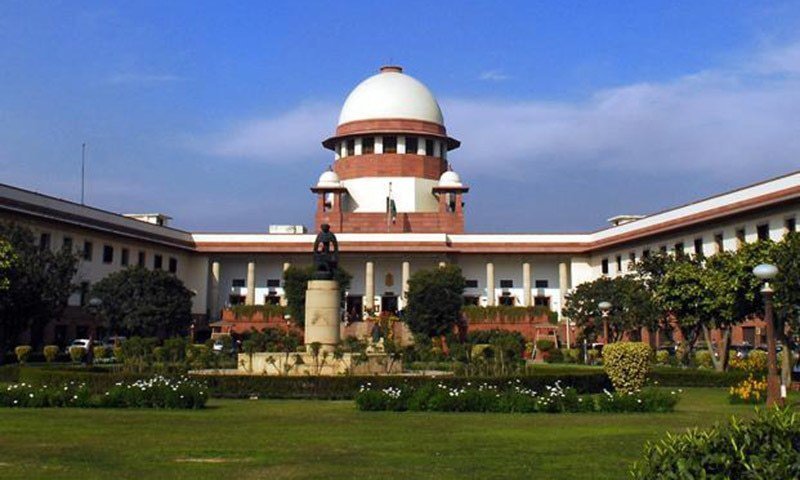
Beneficiary of a statutory welfare scheme entitled to remedies under Consumer Protection Act
by admin | Apr 26, 2020 | Consumer Rights and Laws
Beneficiary of a statutory welfare scheme entitled to remedies under Consumer Protection Act

In a recent judgement, the Supreme Court held that that a construction worker who is registered under the Building and Other Construction Workers’ (Regulation of Employment and Conditions of Service) Act, 1996 is a ‘consumer’ within the ambit of the Consumer Protection Act 1986. This was observed in the case of The Joint Labour Commissioner and Registering Officer and Anr v. Kesar Lal.
This is a landmark judgement of the Supreme Court as more than 2.8 crore registered construction workers will fall under the category of consumers. It means that they can now move to various consumer forums if they are denied any statutory benefits as promised under various welfare schemes especially those implemented with the funds collected as ‘cess’ from builders. The issue gains immense importance as it will determine whether a beneficiary of a statutory welfare scheme is entitled to exact accountability by invoking the remedies under the Consumer Protection Act, 1986.
Parliament enacted the Act of 1996 “to regulate the employment and conditions of service of building and other construction workers and to provide for their safety, health and welfare measures and for other matters connected therewith or with incidental thereto”.
The Union Government has framed the Building and Other Construction Workers’ (Regulation of Employment and Conditions of Service) Rules, 1998 in pursuance of the rule-making powers conferred by Sections 40 and 62. The State of Rajasthan also framed the Rajasthan Building and Other Construction Workers (Regulation of Employment and Conditions of Service) Rules in 2009.
Keeping in mind the welfare of the beneficiaries, the Welfare Board of Rajasthan formulated a scheme on 1st August 2011 for rendering financial assistance on the occasion of the marriage of a daughter of such beneficiaries, which envisages financial assistance of Rs 51,000 on the occasion of marriage.
Seeking to avail financial aid under the scheme, Kesar Lal submitted an application on 6th November 2012 in anticipation of the marriage of his daughter which was to take place on 24 November 2012. Nine months after the application was submitted, the Joint Commissioner of Labour, Jaipur issued an order of rejection covering such applications, finding technical defects as a ground for the decision. He had a valid Labour Beneficiary Identity Card where he would regularly make an annual contribution of Rs 60.
The National Consumer Disputes Redressal Commission rejected the contention that such a construction worker is not a ‘consumer’ within the meaning of the Consumer Protection Act 1986. In the appeal filed against the NCDRC, the contention raised was that the Act will not cover the services provided by the State in the discharge of its welfare which are highly subsidized or free.
The case was therefore placed before the Supreme Court against the judgement of the National Consumer Disputes Redressal Commission (NCDRC).
The question before the Supreme Court was whether a construction worker who was registered under the 1996 Act and was a beneficiary of the Scheme made under the Rules made in line with the enactment, could qualify as a ‘consumer’ within the meaning of Section 2(d) of the Consumer Protection Act 1986.
Relying on the provisions of the parent Act of 1996, the Court noted that every building worker who was registered as a beneficiary under the enactment was entitled to the benefits provided by the Board. It was also found that the welfare fund was created to meet the expenses of the Board in the discharge of its statutory functions, like towards payment of salaries, allowances and remuneration and for meeting the expenses on objects and for purposes authorised by the Act.
Hence, the Court pointed out that the Board was entrusted with specific functions which fell squarely within the definition of service within the meaning of Section 2(1)(o) of the Consumer Protection Act 1986.
Further, on a reading of various provisions, the Bench added that the services rendered by the Welfare Board to the beneficiaries are not provided free of charge so as to constitute an exclusion from the statutory definitions contained in the Consumer Protection Act 1986.
The point isn’t whether the amount which has been contributed by the beneficiary is adequate to cover the whole cost of the expenditure envisaged under the scheme. So long as the service which has been rendered isn’t rendered free of charge, any deficiency of service is aggreable for redressal constituted under the Consumer Protection Act 1986. The Act does not demand an enquiry into whether the cost of providing the service is entirely pay from the price which is paid for availing of the service. As we have seen from the definition contained in Section 2(1)(d), a ‘consumer’ includes not only a person who has hired or availed of service but even a beneficiary of a service. The registered workers are clearly beneficiaries of the service provided by the Board in a statutory capacity.
In conclusion, the Apex Court held that a construction worker registered under the Building and Other Construction Workers’ (Regulation of Employment and Conditions of Service) Act of 1996 who is a beneficiary of the Scheme made under the Rules framed pursuant to the enactment, is a consumer within the meaning of Section 2(d) of the Consumer Protection Act, 1986.
